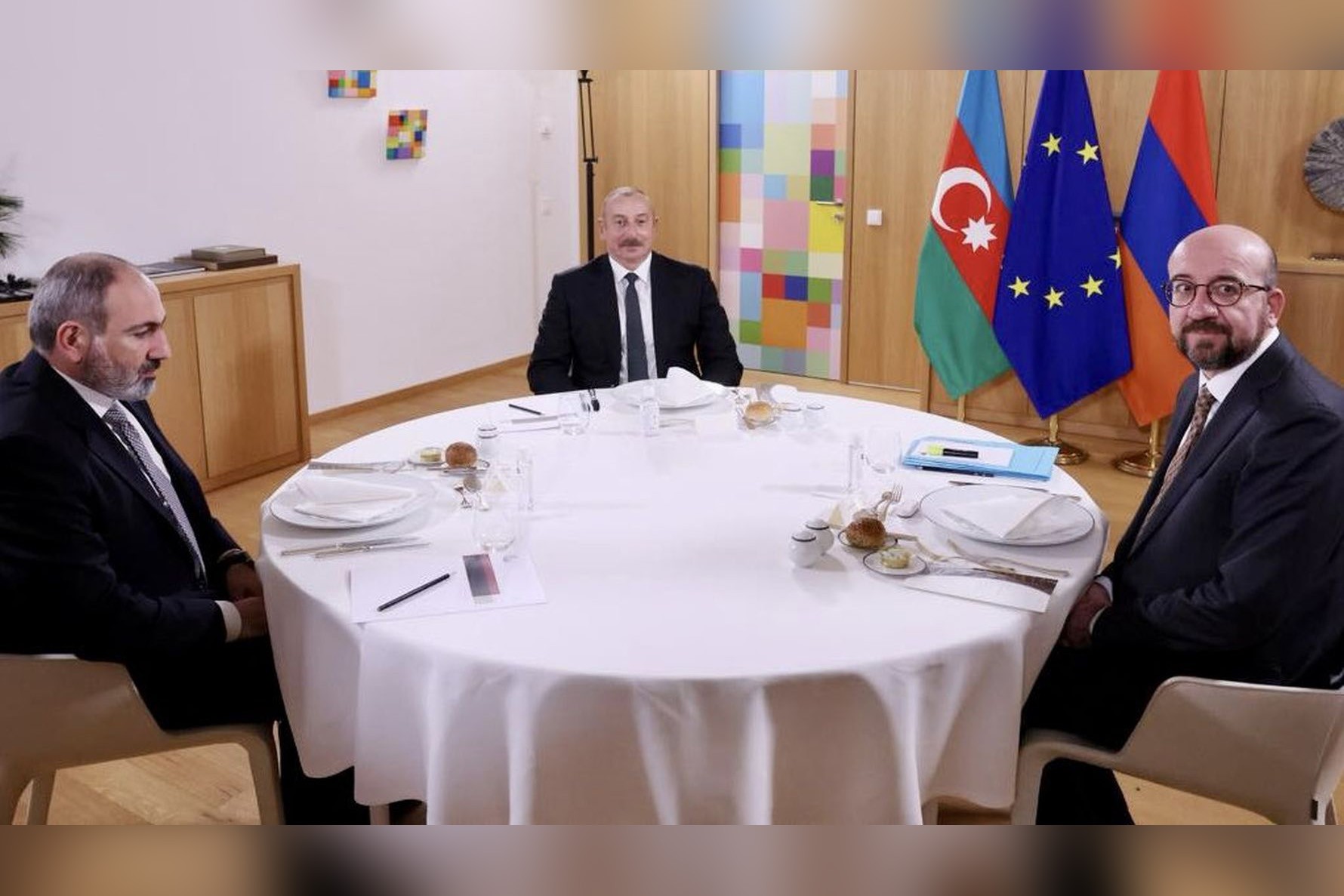
The leaders of Armenia and Azerbaijan have met in Brussels to discuss humanitarian issues and the reopening of communication links in the region.
According to EU Council President Charles Michel, who hosted Tuesday’s meeting, the two leaders also held a brief tête-à-tête conversation after he left the room in order for them to speak directly.
In a statement following the meeting, Michel stressed that the EU would ‘continue to support confidence-building measures between Armenia and Azerbaijan’.
He also welcomed the release of Armenian detainees and the handover of ‘all remaining’ mine-maps by Armenia, and called for the release of the remaining captives being held by Azerbaijan.
Following the meeting, Azerbaijani president Ilham Aliyev criticised Armenia. ‘So far, there are no positive signs’, he said, referring to the possible normalisation of relations.
‘We must learn to live side by side, gradually preparing the ground for the normalisation of relations, including contacts between people’.
‘We won the war, we are the winner, this reality must be taken into account’, Aliyev said.’
He also reiterated his previous claims that the Nagorno-Karabakh conflict has been resolved. ‘There is no going back to discussing the status of Karabakh or anything like that’, he said.
‘The statement makes it clear that the EU has no intention to replace any existing formats but rather contribute to the ongoing and future discussions and agreements’, Crisis group expert Olesya Vartanyan wrote on Twitter following the meeting.
‘Despite yesterday’s controversy over statements about “corridors”, the meeting was a success. Although much preps went into it, some parts were likely edited the last minute — you can see some small typos in the text’.
The ‘Zangezur corridor’
The issue of reopening transport links, especially between mainland Azerbaijan and the enclave of Nakhchivan, dubbed the ‘Zangezur corridor’ by Azerbaijani authorities, has continued to be a point of contention. This was part of the 9 November ceasefire agreement that brought an end to the Second Nagorno-Karabakh War.
While the agreement does not specify any status given to such transport links, the Azerbaijani president has repeatedly demanded a ‘corridor’ which would be under Azerbaijan’s jurisdiction.
[Read more: Is an interconnected Caucasus on the horizon?]
Following Tuesday’s meeting, Armenian Prime Minister Nikol Pashinyan said that the leaders ‘re-established the agreement of the re-opening of the railway’.
‘Accordingly, the railway will operate in accordance with internationally accepted rules of border and customs on the principle of reciprocity, under the sovereignty and jurisdiction of countries’, he said.
Pashinyan has also several times mentioned the possibility of opening roads between the two countries, however, further details have not emerged.
Before the meeting, in a briefing with the NATO Secretary-General Jens Stoltenberg, the Azerbaijani president suggested that the legal aspect of the ‘Zangezur corridor’ should be ‘fully similar to the regime of the Lachin corridor.
The Lachin corridor connects Nagorno-Karabakh with Armenia and since the war has been under the control of Russian peacekeepers.
‘Today, there are no customs in the Lachin corridor. Therefore, there should be no customs in the Zangezur corridor. If Armenia insists on using customs facilities to control cargo and people, then we will insist on the same in the Lachin corridor. This is logical’, Aliyev said.
Pashinyan responded in a post on Facebook stating that Azerbaijan ‘tries to bring the issue of opening regional communications to a deadlock’.
‘The attempts of Azerbaijan’s President to make parallels between the opening of regional communications with the Lachin corridor have nothing to do with the statements signed on this topic. It is unacceptable for Armenia’, Pashinyan wrote.
After the recent tripartite meeting with Russian President Vladimir Putin in Sochi, Aliyev demanded a date for the opening of the ‘Zangezur corridor’.
‘I said, tell us the dates when our lands will be vacated, then we were ready to stop’, he said in reference to demands made during the war.
‘Today, I say the same words. Tell me the dates when the Zangezur corridor will open, in which case there will be no problem.’
The talks in Brussels also coincided with moves to normalise relations between Armenia and Turkey, a staunch supporter of Azerbaijan.
Turkey’s Foreign Minister Mevlut Cavusoglu said on Monday that Turkey and Armenia would name special envoys to discuss normalisation, adding that charter flights between Istanbul and Yerevan would also be resumed. In response to Cavusoglu’s statement, Armenian Foreign Ministry stated that ‘Armenia has always been and remains ready for the process of normalization of relations with Turkey without preconditions’ and that they ‘assess positively’ Turkish FM’s statements.








